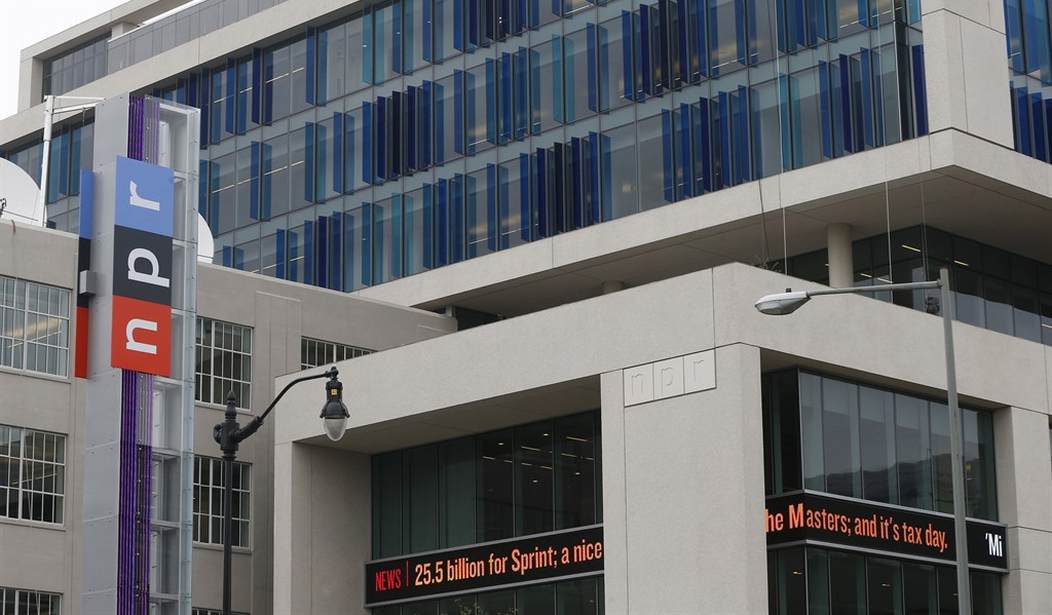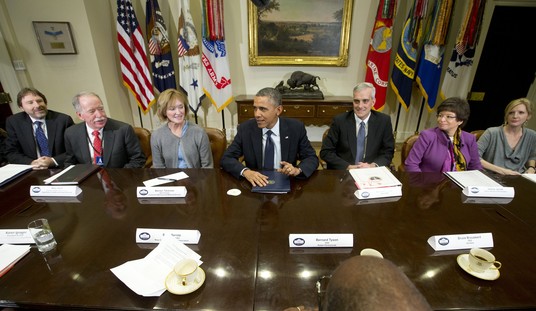NPR keeps insisting that the funding it gets from the federal government is de minimus. A percent or two of the total. Maybe 3%.
Certainly not enough to claim that they are government funded, at least. They are leaving Twitter rather than be labeled “publicly funded.”
That, my friends, is not remotely true. When pushed, even they will admit it, although in doing so they also admit that they haven’t a clue how much money they actually get from federal sources.
No matter. NPR doesn’t want anyone to know how dependent they are on tax dollars. They would rather leave Twitter than either reveal the numbers or give up the money they claim doesn’t matter.
First of all, how does NPR make the seemingly ridiculous claim that they barely get any federal money at all?
Well, in a direct sense that is true. But only in the sense that a chop shop owner could claim that he doesn’t make money from stealing cars.
He doesn’t steal them directly. He gets them from others who do and then rakes in the profits.
It turns out that NPR has very complicated finances–so complicated that when pressed on the matter in 2015 after an analyst claimed that about 1/4 of their funding came from tax dollars they answered “Quantifying that amount is imperfect, and impossible math.”
Any claim that 25% of NPR’s funding comes from the government is unfair, as it includes the tax subsidy that applies to all non-profits through deductions. That’s not how we tend to think of “government funding,” and since a lot of nonprofits don’t do the government’s bidding it isn’t fair to classify all nonprofits as government-funded.
But a claim of 10-15% as the real number is much fairer. It’s hard to say exactly, but the number is clearly a lot higher than NPR wants to admit.
How is that possible? Well, it turns out that NPR gets a huge part of its budget through fees paid by local stations, which are themselves government-funded. They also get money from universities, which are themselves publicly funded. And even that government funding gets complicated since states use federal dollars that get funneled to local stations which then funnel it to the mothership.
It’s a Rube Goldberg machine. After a while, it becomes impossible to know where all that money comes from and where it winds up exactly. Which dollar went where for what? Who knows? NPR doesn’t, and they don’t want you to know either.
InfluenceWatch gives a very abbreviated description that doesn’t capture the complexity, but makes a start:
In 2020, National Public Radio earned $275,424,738 in revenue. 23 NPR generates its revenue from a wide variety of sources. In 2017, NPR earned 38% of its revenue from individual contributions; 19% from corporate sponsorship and licensing; 10% from foundation donations; 10% from university licensing and donations; and 4% from federal, state, and local governments via member stations. 24
Despite the minimal contributions to the NPR budget made by state funding, NPR has claimed that “federal funding is essential to public radio’s service to the American public.” NPR’s website especially stresses that local journalism is dependent upon federal funding. 25
Most of this federal funding comes from the CPB which indirectly finances NPR by providing grants to local radio stations which then license content from NPR for broadcasting. Most of the federal, state, and local government funding reaches NPR through the same process. In addition, the CPB and federal, state, and local governments give direct grants to NPR which amount to less than 1% of the organization’s annual budget in an average year.
The university money, for instance, which makes up 10% of its funding almost certainly comes mostly from federal and state dollars. Does that count? Depends upon whom you ask. Are school lunch subsidies a federal or state contribution? The feds provide dollars, the state manages them, and maybe kicks in more. On whose ledger does it go?
It’s messy and complicated and, as NPR has said, “quantifying that amount is imperfect, and impossible math.”
It may be messy, but the NPR folks sure do know one thing beyond doubt: they believe that funding is “essential” to their mission.
This proves the point that not even the people claiming that the federal funding is so small it shouldn’t count actually believe it.
If the funding is “essential,” it can’t be de minimis.








Join the conversation as a VIP Member